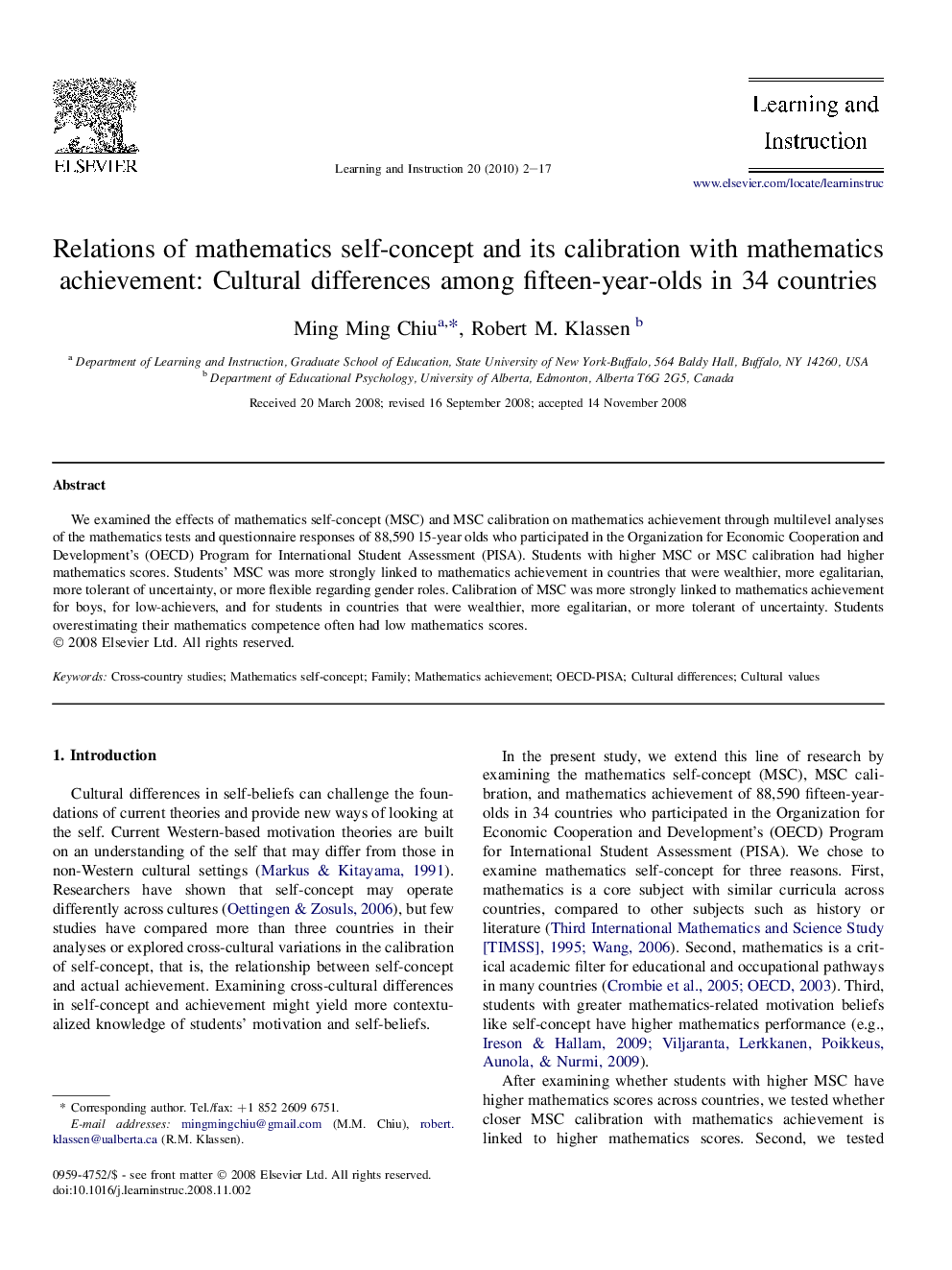| Article ID | Journal | Published Year | Pages | File Type |
|---|---|---|---|---|
| 365786 | Learning and Instruction | 2010 | 16 Pages |
We examined the effects of mathematics self-concept (MSC) and MSC calibration on mathematics achievement through multilevel analyses of the mathematics tests and questionnaire responses of 88,590 15-year olds who participated in the Organization for Economic Cooperation and Development's (OECD) Program for International Student Assessment (PISA). Students with higher MSC or MSC calibration had higher mathematics scores. Students' MSC was more strongly linked to mathematics achievement in countries that were wealthier, more egalitarian, more tolerant of uncertainty, or more flexible regarding gender roles. Calibration of MSC was more strongly linked to mathematics achievement for boys, for low-achievers, and for students in countries that were wealthier, more egalitarian, or more tolerant of uncertainty. Students overestimating their mathematics competence often had low mathematics scores.
